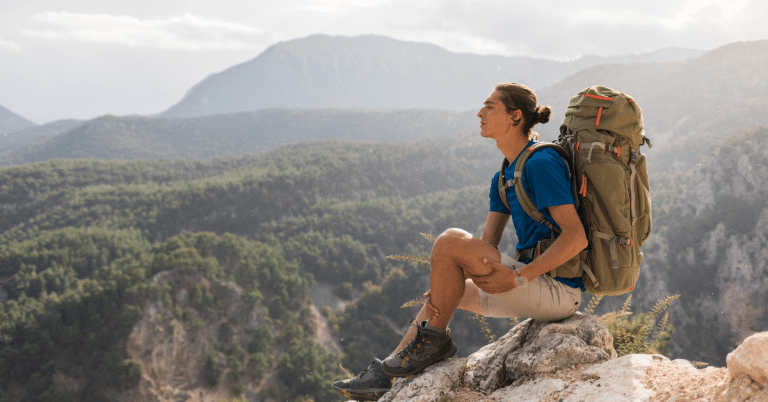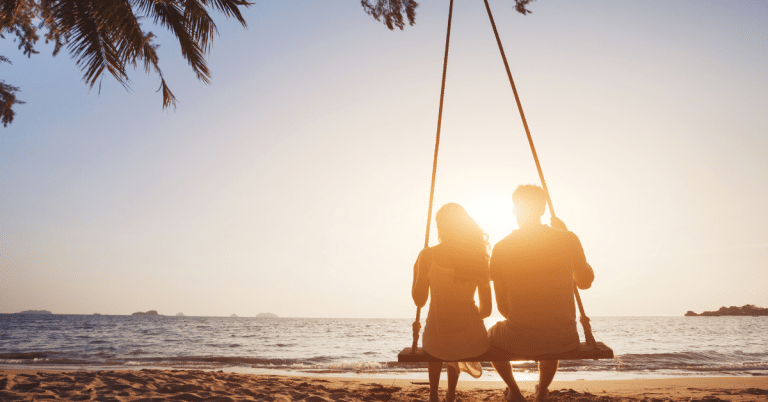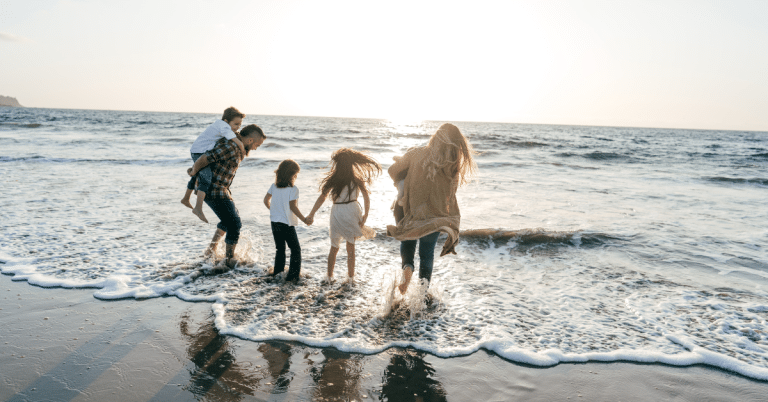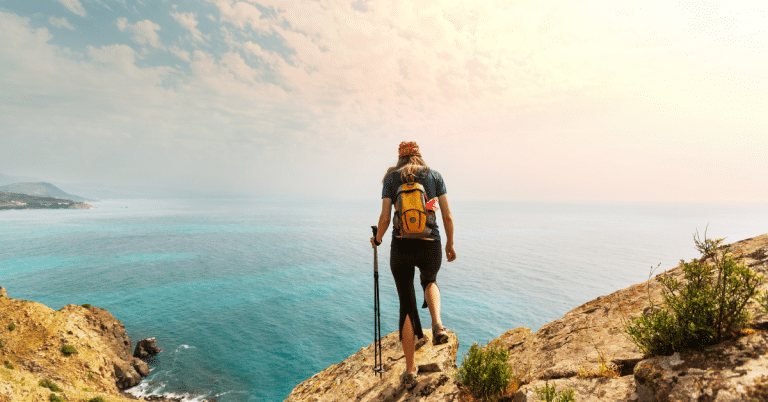10 Outdoor Adventures To Try With Your Kids Today

Author: Jenn Coleman
Why is it so essential to share outdoor adventures with kids? Not only does it limit screen time and increase physical activities, but it creates a framework for family outings that can last long into adulthood. What starts as a hobby can become a cherished family tradition passed down through the generations.
Your children will not only be entertained, but they’ll learn life skills for problem-solving and emerge with a confidence that’s forged in challenges. As a participating adult, you get your steps in instead of watching from the sidelines in a lawn chair. Your kids can see you as strong and capable, not a chauffeur with snacks.
Our list of ten outdoor adventures to do with your kids highlights activities suitable for the entire family. Everybody can participate and have fun in safe and collaborative excursions on their family vacations. Together, you can reap the benefits of transformative adventures while building an indelible family bond.
Skiing
I’ve taught skiing professionally for over twenty years, and there’s a right way and a wrong way to take your kids skiing. Skiing is inherently expensive, so don’t try to save money by giving your kids lousy gear you would never use. You can rent a complete kid’s outerwear kit for under $30 per day. That’s a bargain compared to paying for a ski lesson only to have your kid stay inside and drink hot chocolate because they got too cold.
Once you get a line on good gear, pick a kid-friendly mountain like Deer Valley Utah. Named “Best In Family Ski Experience” for 2023 by the Wall Street Journal, Deer Valley offers good snow, grooming, and a smooth terrain progression from beginner to advanced slopes. They also have a top-notch ski school, short lines, and user-friendly dining experiences. The “Deer Valley Difference” is a service-oriented policy that reduces your stress and task loading, leaving more time for you to focus on family and fun.
This brings us to the next point—focus on your family. You can carve your tracks in the freshly groomed morning snow while the fam is in ski school. Be there to pick them up on time after their lessons. Take them out for a yummy lunch. Then, spend some time practicing what they learned on an age-appropriate slope. Ski school should be more than bougie child care, it should enable the family to ski together.
Scuba Diving
Children’s natural curiosity and affinity to learn new skills make them some of the best scuba divers. They also naturally use less air underwater and require less buoyancy compensation. You must have a certain lung capacity to clear a snorkel, but anybody can breathe from a regulator.
PADI offers pool classes for children eight and older, but once they turn ten, they’re eligible for a Junior Open Water Diver course. When they turn fifteen, that course automatically transfers to an Open Water Diver certification. Diving is more a mental exercise than a physical challenge, so junior divers have no problems keeping up with their parents as they share a passion.
Here’s the real kicker (pun intended)—if your kids get hooked on diving, they’ll always want to blow bubbles with you. Kids under fifteen must dive with an adult, and everybody should have a dive buddy they’re comfortable with. Plus, once they leave the nest, they must dive regularly to stay current on their certifications. They’ll be begging to keep coming on family-dive vacations, and diving is something you can keep doing with your kids well into your retirement years.
Here are some considerations for diving with kids:
- Avoid drift dives so your group naturally stays together
- Look for good visibility so you can see them wandering off
- Dive in warm water because little ones have difficulty keeping their body heat
- Boat dives are better than shore dives
- Go on trips with plenty of dive master support
- Given these constraints, the Aqua Cat liveaboard in the Bahamas might be the ideal place to take kids diving because it checks all the boxes and has incredible shore excursions when it’s time for a surface break.
Surfing or Boogie Boarding
Surfing is another sport where weight works against you. Everybody is learning how to surf on an eight-inch foamy these days these days. Kids will have no problem popping up on that. With their dimensions, that board is like a barn door. They could probably do a handstand and balance on the board if it wasn’t leashed to their ankles.
Like skiing, there are some pretty good children’s surf classes available. You should consider taking one or two yourself because your kids will be out surfing you in no time. Boogie boarding is a pretty good “surfing lite” alternative. You don’t have to pop up, but you still learn to read and catch waves. A boogie board might be just the tool you need in case your kids (or you) need to equalize family surfing skills.
Once you get your bottom turn, it’s time to head out to the lineup. Here’s another chance to equalize the activity because you chose your wave. You don’t have to jump on every jumbo board breaker you see. You can pick and choose your waves and philosophize on your board between sets.
Rope Course or Zip Lines
There’s a reason jungle gyms have been standard playground equipment forever. Kids love climbing. With their strength-to-weight ratio, it’s easy to see why. They can scamper up just about anything like wild monkeys, which isn’t too far from the truth.
Rope courses are an excellent way to play outdoors with your family because you’re safe once you clip in until you leave the structure. Your length will help you with some moves, and your kids’ strength will help them with others.
Zip lines are another arial element where kids thrive. Every zipline is different, so be sure to check for age restrictions before finalizing plans. You don’t want to fall victim to the dreaded “You must be this tall to ride this ride” situation.
Climbing or Bouldering
Climbing indoors is a lot like a ropes course because it’s a controlled environment. You can even book classes. But once you go outdoors, it’s an entirely different ballgame. In particular, you have to figure out if your kids can belay you.
Generally, you have two types of safety systems—top ropes or lead climbing. When you’re lead climbing, you clip the rope into protection as you ascend, and you have a chance of taking a dynamic fall. That’s why a single-pitch top rope anchor is a great place to start. You can find auto belay systems if you don’t fully trust your belayer, but you still need to feel comfortable getting off rope if you get stuck.
Bouldering is a great way to get kids climbing outdoors because you don’t have to mess with a rope or belay. This makes everything easier, and less expensive. You might have a hard time keeping up with your kids, but everyone will have fun participating.
Hiking
Kids and hiking go together like peanut butter and jelly. Kiddos can find and fidget all day long as long as you don’t run out of snacks or water. The key is to pick the right trail. Be careful with planning loops and shuttles where you have to keep walking. It’s easier to hike an out-and-back where you aren’t forced to make miles.
Waterfall hikes in the Smokies are examples of the perfect trails for kids. They’re short and shady, with lots to see and do along the way. Once you get back to Gatlinburg, you can take in some treats to make it a dreamy day.
Geocaching
The trick to taking kids hiking is to make a game out of everything. I’ve personally gotten a lot of mileage out of the “find the roundest rock” game, but kids these days are getting way too sophisticated for that. That’s where geocaching comes in.
Over a century ago, there was a hide-and-seek game called Letterboxing, where participants found items solely on clues and conjecture. Finding 100 caches was often enough to be considered a master. With GPS on mobile devices, there are more than 3 million active caches worldwide.
Geocaching is a game that can grow with you. At first, it’s about finding someone else’s toys and trinkets. Soon, you’re building your stash with clever clues and consummate prizes.
Camping
I’ve slept outside in dozens of configurations, but I’m still not 100% sure what camping is. Maybe that’s the beauty of the “sport.” There’s no wrong way to do it. Whether it’s an excuse to eat smores and burn things or a logistical solution to some grand adventure, it’s still camping.
The key to camping with your kids is to take them outside their comfort zone while keeping them comfortable. There’s no reason to be cold, wet, or hungry. Those are planning failures. Hearing the creatures of the night wake up and watching a new day dawn in the great outdoors are adventures into new and uncharted territory.
Paddling
Who says kids don’t behave better after a good paddling? Human-powered watercraft is an incredible tool to access the outdoors with kids. Local canoe liveries have all the gear and goods required to get you out on the water, including accurate knowledge about how long the trips should take and potential challenges you’ll encounter along the way. All a kid needs to do to complete the journey is stay in the boat. However, for parents’ sanity, plan plenty of time outside of the boat, swimming, snacking, splashing, and slowly working your way downstream.
After a while, consider making that big step and planning an overnight adventure. You can take extra gear, food, water, and even the children themselves on boats and access places just a little off the beaten path. Start small, like an out-and-back paddle to boat-in camping. Maybe try a circuit camp route on flat water then work in complicating factors, like river runs or rapids, when you feel comfortable.
Biking
With e-bikes, tandems, and trailers, it’s easy to get kids traveling down the trail under slightly less than their own power. The trick is picking the right trail. There are two basic choices: urban adventures and park playtime.
For urban adventures, you want a bike trail with plenty to see and do along the way. Biking in Madison, Wisconsin, shows what’s possible. There are over 200 miles of trails in Madison, and their Madison By Bike app offers you ways to access the neighborhoods off the trail for ice cream, museums, and boating.
Biking in Gulf State Park, Alabama, is an ideal park ride. Twenty-six miles of trail inside the park take you to climbing walls, three-legged alligators, and much more. Then, when you get off the bike, you’re ready for camping, paddling, and maybe even scuba diving.
Outdoor Adventures With Kids
You might have noticed a theme with all of these adventures: keep the kids comfortable and entertained, and you have a chance. Pick places that are easy to get into (and out of) at first, and utilize professionals to ease you into the activity. Start small, and keep building to bigger and bolder adventures.
There are a lot of pitfalls you’ll encounter along the way, but don’t be discouraged. If you look at these challenges correctly, that’s half the reason you go. You could stay home and eat snacks on the couch, but you wouldn’t learn that you could overcome these obstacles and find a way to have fun together in nature.
This article originally appeared on Travel Binger.





